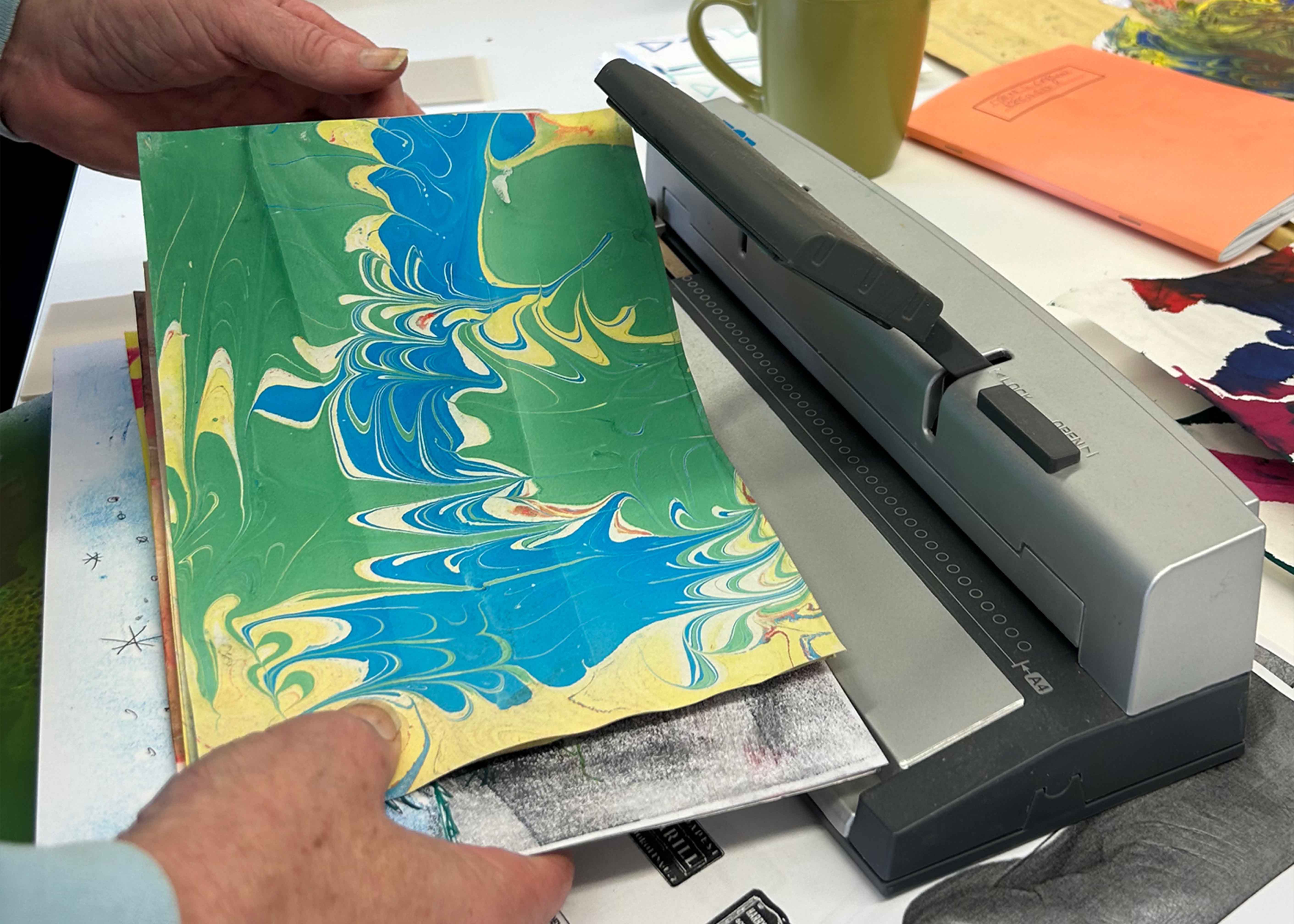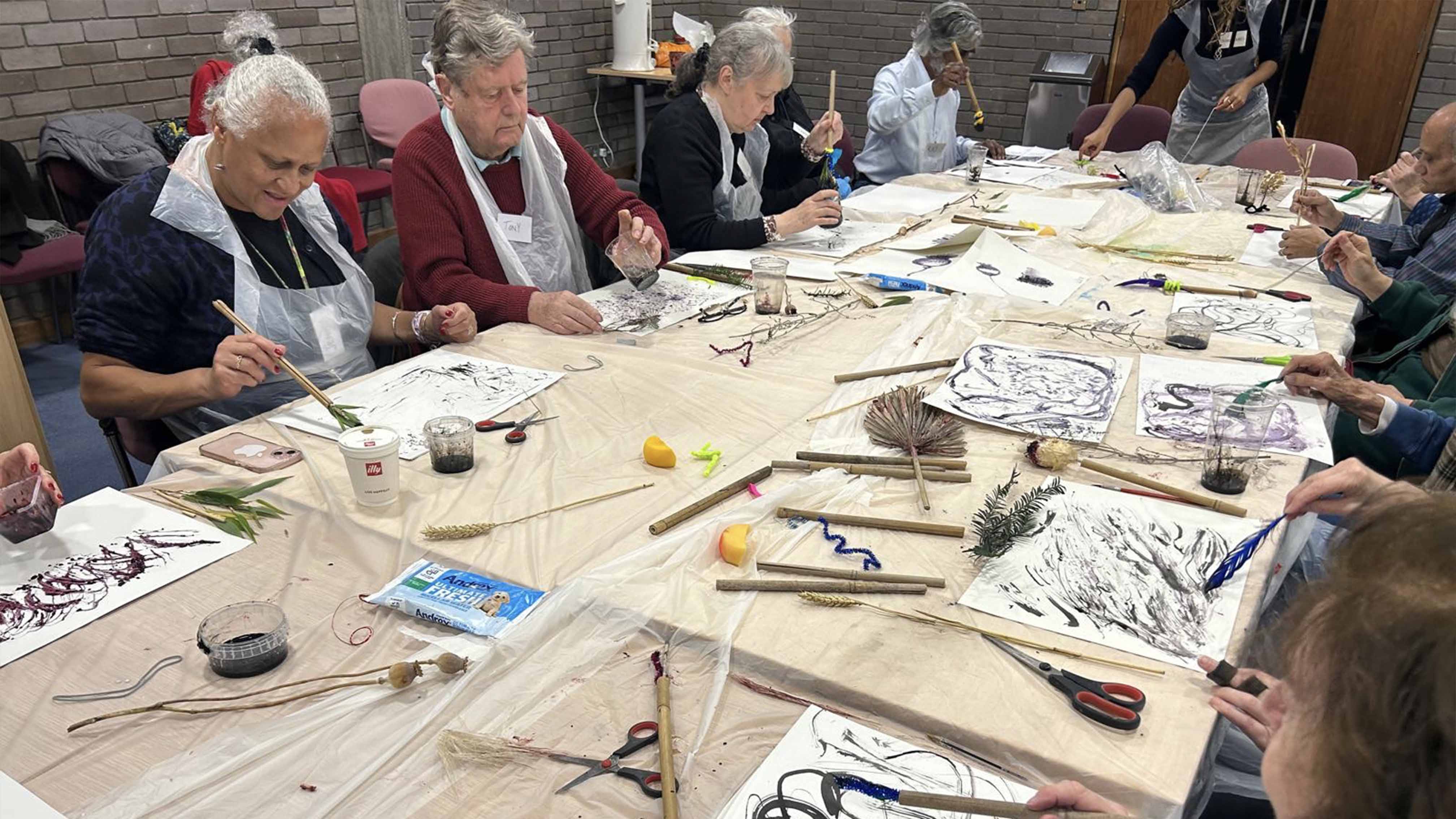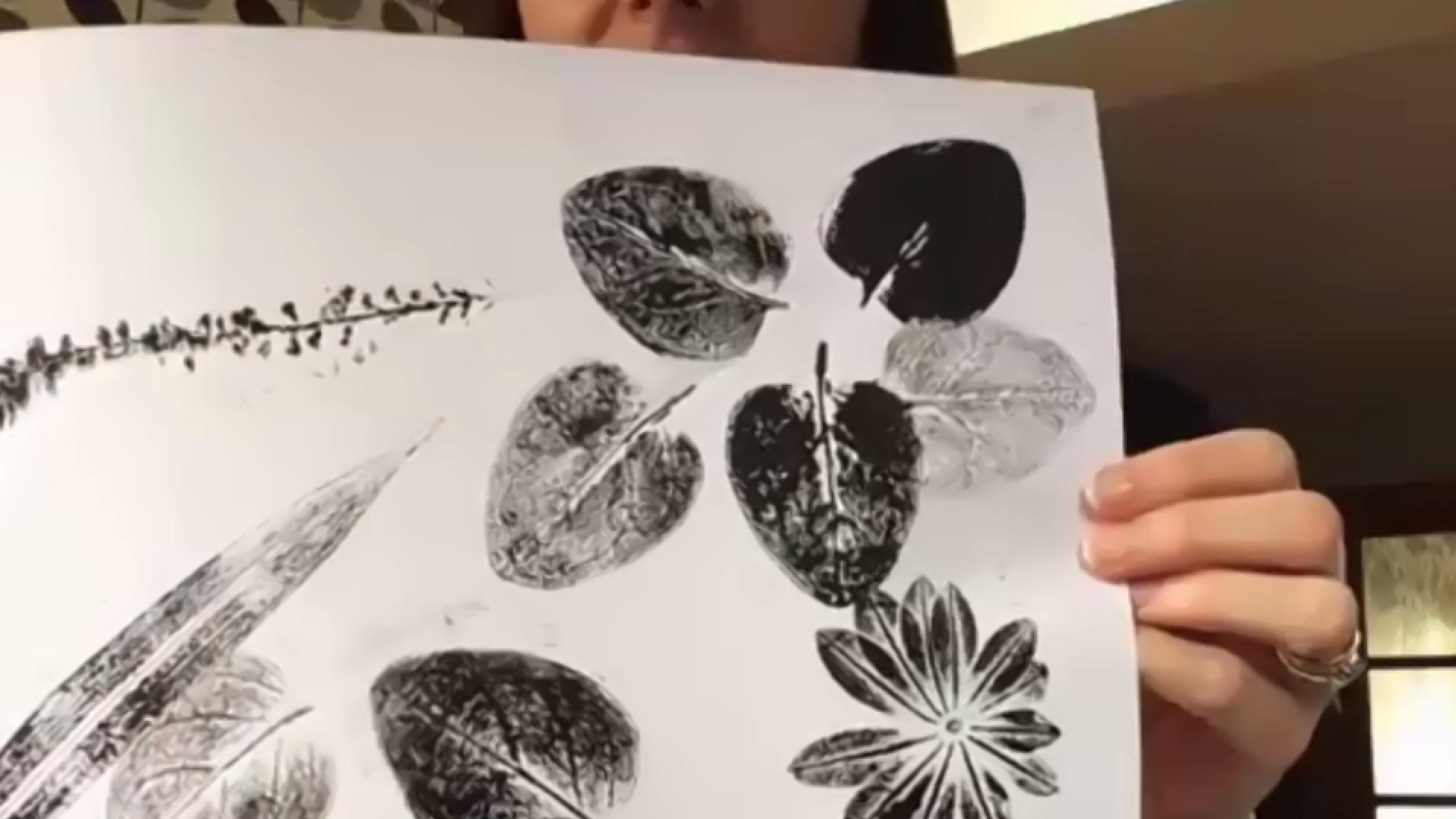Men’s Cabin



Information

“
Engage Here has encouraged me to explore arts and crafts, using natural materials such as leaves. Filling the leaf’s surface with ink, feels like I am filling in the holes in my Alzheimer’s brain” Stella
Make Sense Participant






Methodology